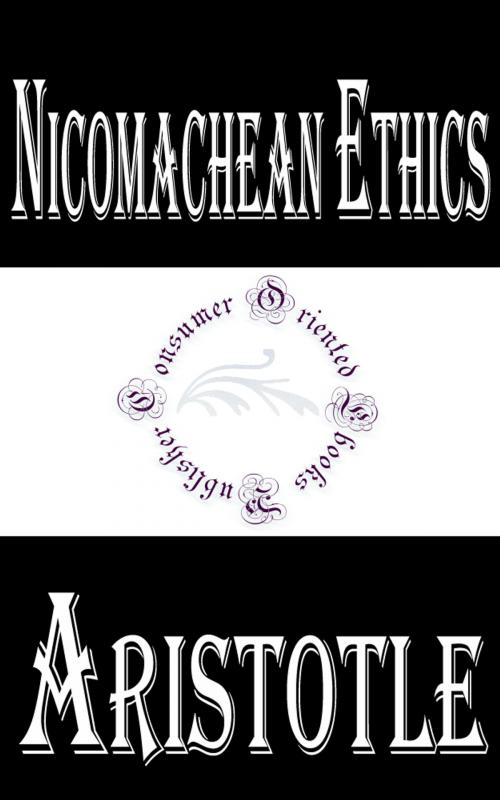Nicomachean Ethics
Nonfiction, Religion & Spirituality, Philosophy, Humanism, Ancient, Ethics & Moral Philosophy| Author: | Aristotle | ISBN: | 1230000273592 |
| Publisher: | Consumer Oriented Ebooks Publisher | Publication: | October 12, 2014 |
| Imprint: | Language: | English |
| Author: | Aristotle |
| ISBN: | 1230000273592 |
| Publisher: | Consumer Oriented Ebooks Publisher |
| Publication: | October 12, 2014 |
| Imprint: | |
| Language: | English |
The Nicomachean Ethics (/nɪˌkɒmæˈkiːən/) is the name normally given to Aristotle's best-known work on ethics. The work, which plays a pre-eminent role in defining Aristotelian ethics, consists of ten books, originally separate scrolls, and is understood to be based on notes from his lectures at the Lyceum, which were either edited by or dedicated to Aristotle's son, Nicomachus.
The theme of the work is the Socratic question which had previously been explored in Plato's works, of how men should best live. In his Metaphysics, Aristotle described how Socrates turned philosophy to human questions, whereas Pre-Socratic philosophy had only been theoretical. Ethics, as now separated out for discussion by Aristotle, is practical rather than theoretical, in the original Aristotelian senses of these terms. In other words it is not only a contemplation about good living, but also aims to create good living. It is therefore connected to Aristotle's other practical work, Politics, which similarly aims at people becoming good. However ethics is about how individuals should best live, while the study of politics is from the perspective of a law-giver, looking at the good of a whole community.
The Nicomachean Ethics (/nɪˌkɒmæˈkiːən/) is the name normally given to Aristotle's best-known work on ethics. The work, which plays a pre-eminent role in defining Aristotelian ethics, consists of ten books, originally separate scrolls, and is understood to be based on notes from his lectures at the Lyceum, which were either edited by or dedicated to Aristotle's son, Nicomachus.
The theme of the work is the Socratic question which had previously been explored in Plato's works, of how men should best live. In his Metaphysics, Aristotle described how Socrates turned philosophy to human questions, whereas Pre-Socratic philosophy had only been theoretical. Ethics, as now separated out for discussion by Aristotle, is practical rather than theoretical, in the original Aristotelian senses of these terms. In other words it is not only a contemplation about good living, but also aims to create good living. It is therefore connected to Aristotle's other practical work, Politics, which similarly aims at people becoming good. However ethics is about how individuals should best live, while the study of politics is from the perspective of a law-giver, looking at the good of a whole community.















